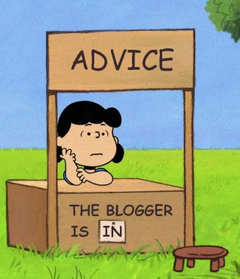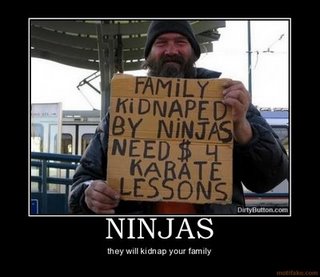Candidate Advice You Should Not Share With Your Candidates
Back in the 1970s and early 1980s after a spate of run-ins with the law and arrests and general bad behavior amongst members of his Oklahoma University football team, then-coach Barry Switzer was asked by a reporter what he planned to do about better controlling player's off-field conduct. Switzer, probably out of frustration, and the fact that that morning another player had been arrested for assault, is said to have replied "Frankly I am not sure what else I can do, short of putting up a sign in the locker room that says "Committing a felony is against team policy"."
Switzer's point was that he should not have to remind the players of really obvious things - things every decent person just knows to be true, regardless of who they are or how experienced they might be. I thought of that old story when I saw another version of the endlessly repeated 'Advice to job candidates' tips pieces, that includes, among other nuggets, a recommendation to 'Be nice to the receptionist' when showing up for a job interview.
That advice is terrible. Not because candidates shouldn't be nice to the receptionist, rather because no decent person, yet alone candidate, should have to be reminded to be nice to the receptionist, or anyone else. In fact, as an employer you would not want to artificially inject fake 'niceness' into a candidate who otherwise would not be nice. It would be better to catch them being an ass and reject them up front, rather than get duped by some fake interview day charm and learn only later how much of a jerk they really are.
So with that said, here are my Top 3 pieces of candidate advice you should not share with candidates:
1. Be nice to the receptionist/security guard/limo driver - sort of covered above, but worth repeating. No one, once they are older than about 9, should have to be reminded to be 'nice.' In fact, 'nice', needs to be the default setting. You should expect more than 'nice' from people that you really want to be around for more than 3 minutes at a time. Translated - I can accept 'nice' from the Starbucks barista, people I am going to work closely with for 40 hours a week had better be damn nice, if you get my meaning.
2. Show up on time, be dressed appropriately, take a shower before the interview - Everything that falls into the category of 'Basic rules of conduct in a civilized society' should not be repeated under the mantle of candidate advice. The only exception possibly being when advising students preparing for their first experience in an interview setting, where some coaching on dress/conduct might be warranted. For everyone else though, if a candidate needs to be reminded to skip the flip-flops for the interview, then you should just let that candidate flip-flop on out of your office.
3. Research the company/industry prior to the interview - 'Normal' people will read 27 reviews on Yelp before choosing a lunch restaurant and scour page after page of Amazon ratings while considering which pair of earbuds to buy. So we have to remind candidates to know something about the company they are about to interview with? If a candidate turned up for an interview less informed about your company than they were about the last season of The Walking Dead, then again, you want to catch that lack of intellectual curiosity and conscientiousness up front.
I am sure if we really wanted to we could dredge up several more pieces of 'Candidate Advice' that are really just 'How to behave like a decent human being' tips, but you get the idea. Not taking a cell phone call in the middle of the interview probably deserves a mention too, but I think you get the idea.
You don't want to coach your candidates to be decent human beings, you want your process to allow those 'not decent' folks to reveal themselves before you make the mistake of hiring them.
Otherwise, you could find yourself tacking a 'Committing a felony is against company policy' sign on the break room wall.
 Career,
Career,  Recruiting tagged
Recruiting tagged  8 Man Rotation,
8 Man Rotation,  Recruiting,
Recruiting,  advice,
advice,  candidate,
candidate,  career
career  Email Article
Email Article 
 Print Article
Print Article 



